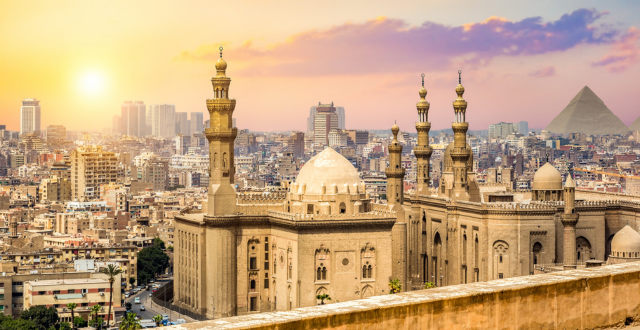First hearing held in case to officially recognize Easter; presents new opportunity for Egypt to advance religious freedom protections, as petitioners seek to end requirement for millions of Christians to work or attend school on Easter Sunday.
ADF International supports the petition to protect Egyptian Christians’ right to worship on Easter in an ancient cradle of Christianity.

CAIRO — 13 OCTOBER. Over the weekend, Egypt’s Administrative Court heard an appeal challenging the Prime Minister’s denial of a petition calling for Easter Sunday to be recognized as an official public holiday. The petition, submitted by lawyers and citizens from diverse religious backgrounds and supported by ADF International, urges the government to designate Easter—one of the most important and widely celebrated days on the Christian calendar—as a public holiday. The case will now move forward to the State Commissioners Authority, who will consider the matter on January 17, 2026.
Egypt has one of the oldest Christian communities in the world, and Christians continue to make up over 10% of the country’s population. Despite the estimated 10 million Christians living in Egypt, Easter Sunday is not currently recognized as a public holiday. Because Sunday is a regular working day in the country, rather than part of the weekend, many Christians are forced to attend work or school on Easter Sunday.
“This petition represents an important opportunity to advance the right of Christians to freely practice their faith in Egypt. For millions of Egyptian Christians, recognizing Easter as a public holiday would mean being able to fully observe one of the most sacred days of their faith without having to choose between work or school and their religious practices."
- Kelsey Zorzi, Director of Advocacy for Global Religious Freedom at ADF International
“For years, I’ve been forced to work on Easter Sunday. I’ve been denied the ability to attend church and celebrate with my family,” said one government employee at Egypt’s Ministry of Higher Education.
Even when accommodations are requested, they are often denied. As one Christian lawyer in Cairo explained, “I was required to appear in court on Easter Sunday. The judge refused to reschedule. I missed church and family traditions.”
Other religious holidays, including Orthodox Christmas and Muslim celebrations, are already officially recognized by the Egyptian government. The lack of recognition of Easter forces Christians to choose between observing their faith and fulfilling their professional or academic duties.
“This petition represents an important opportunity to advance the right of Christians to freely practice their faith in Egypt,” said Kelsey Zorzi, Director of Global Religious Freedom for ADF International. “For millions of Egyptian Christians, recognizing Easter as a public holiday would mean being able to fully observe one of the most sacred days of their faith without having to choose between work or school and their religious practices. It’s a meaningful step toward ensuring their rights are respected.”
The petition draws on both Egyptian constitutional provisions, such as the guarantees of religious freedom and equality under Articles 53 and 64, and Egypt’s obligations under international human rights treaties, including the International Covenant on Civil and Political Rights and the International Labour Organization’s Convention No. 111, which prohibits religious discrimination in employment. The historical precedent for recognizing Easter as a public holiday in Egypt dates back to the monarchy, which formally acknowledged and observed it as a holy day. Petitioners note that several other countries in the Middle East already recognize Easter, and that doing so in Egypt would mark an important step forward for religious freedom in the region.
“Recognizing Easter as a public holiday is essential because it removes a significant barrier for millions of Egyptian Christians who currently must choose between their faith and their work or education,” said Haytham Ereifej, attorney and representative of ADF International in the Middle East. “This change upholds their constitutional and international rights, ensuring equal treatment and respect for religious freedom across Egypt.”
ADF International is supporting this effort and will continue to advocate for the protection of religious freedom in Egypt and around the world.
Background
ADF International is committed to promoting religious freedom for Christians and other religious minorities in Egypt. Through engagement with local partners and international bodies, ADF International has consistently advocated for the rights of all Egyptians to freely choose, speak about, and live out their faith. Such rights are consistent with Egypt’s constitution, which explicitly prohibits discrimination on the basis of religion, as well as its commitments under numerous international treaties.
The petition to recognize Easter Sunday as a national holiday reflects a broader grassroots effort, supported by ADF International, to help build a culture of genuine religious equality in Egypt, where every citizen is free to live out their faith without penalty or restriction.


